| These images were taken at Nightfall 2007 in the California desert at Borrego Springs on October 12th and 13th. They were taken in an activity I call "Celestial Snapshots", which is a way of sharing the imaging experience with a group of people. Since standing around watching a camera take pictures is not very exciting, in this activity only short exposures of 1 minute are taken, with targets suggested by the participants. It is a great way for the public to experience imaging, as well as an ideal way to share astronomy with individuals with disabilities. | |
| Technical Details | |
|
Telescope: Tele Vue NP127is - 127mm dia, 660mm FL, f/5.2 apochromatic refractor Camera: SBIG STL1001 - 1024x1024, 24μm pixels, 24.6mm x 24.6mm CCD chip Mount: Losmandy G-11/Gemini At a focal length of 660mm, the 24.6mm x 24.6mm CCD chip covers 2 x 2 degrees. This focal length coupled with the 24μm pixel size results in each pixel covering 7.5 arcminutes of the sky. While this resulted in severely undersampled stars, stacking the images, which were all 1-minute unguided exposures, had the effect of dithering the image, resulting in round stars. The large pixels are quite sensitive, resulting in the ability to capture some very faint objects in just a short series of exposures. See below for more technical details. |
|
| Thanks | |
|
Thanks go to Alan Holmes of SBIG for the use of the camera, John Rhodes and David Nagler of Tele Vue for the use of the telescope, and Richard Garcia and Alex McConahay for the use of the mount. |
|
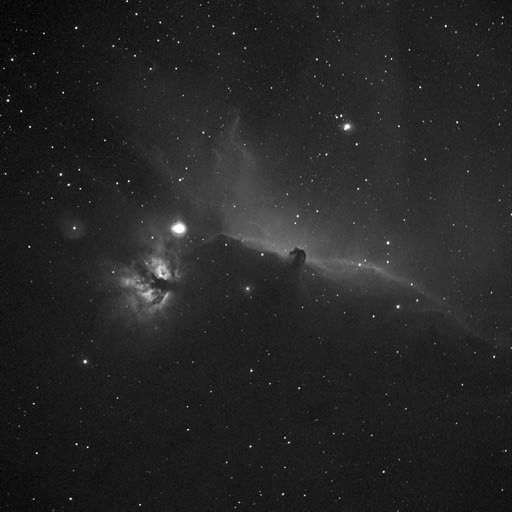 |
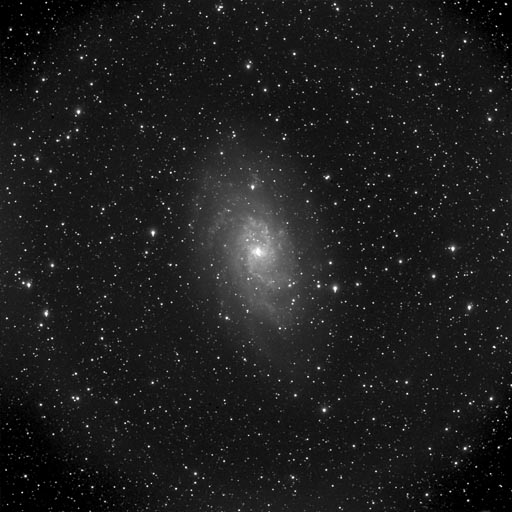 |
The Horsehead Nebula in Orion |
The Pinwheel Galaxy in Triangulum |
through a Hydrogen-α filter |
|
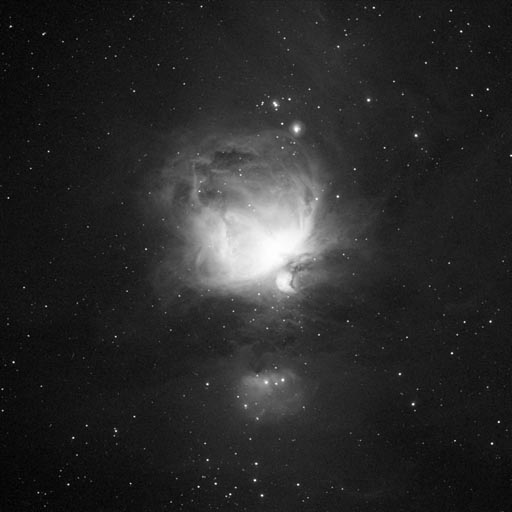 |
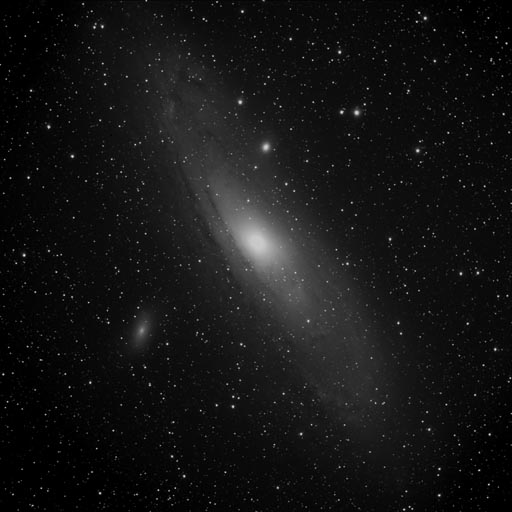 |
The Orion Nebula |
The Great Andromeda Galaxy |
through a Hydrogen-α filter |
|
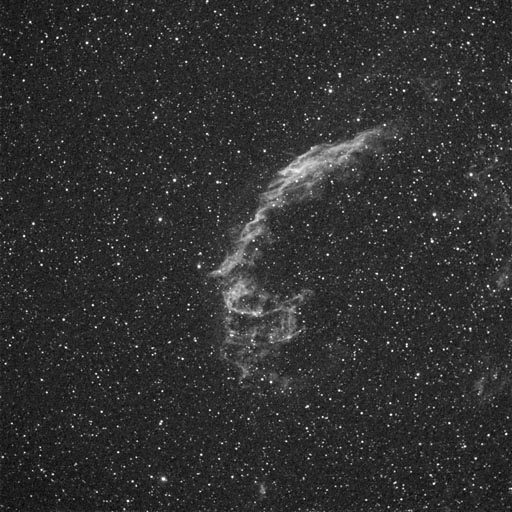 |
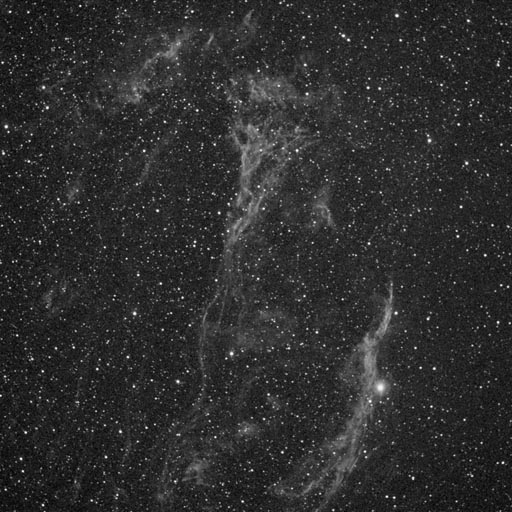 |
The Veil Nebula in Cygnus Eastern section |
The Veil Nebula in Cygnus Western section |
through a Hydrogen-α filter |
through a Hydrogen-α filter |
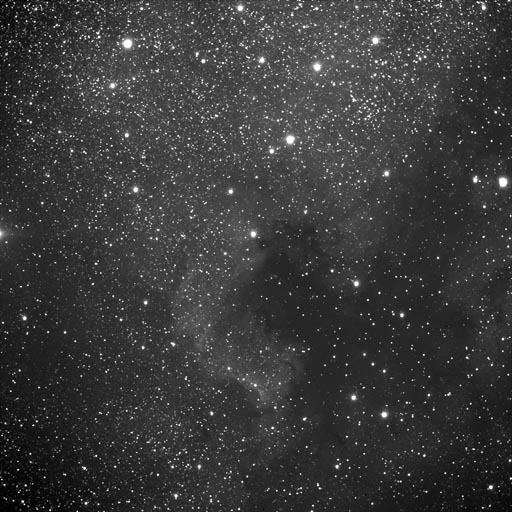 |
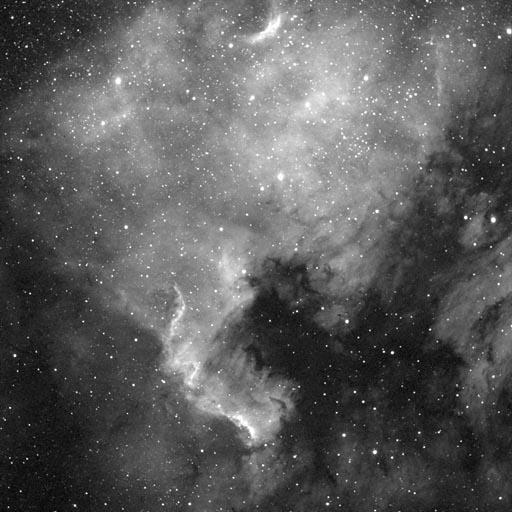 |
The North America Nebula in Cygnus |
The North America Nebula in Cygnus |
through a Hydrogen-α filter |
|
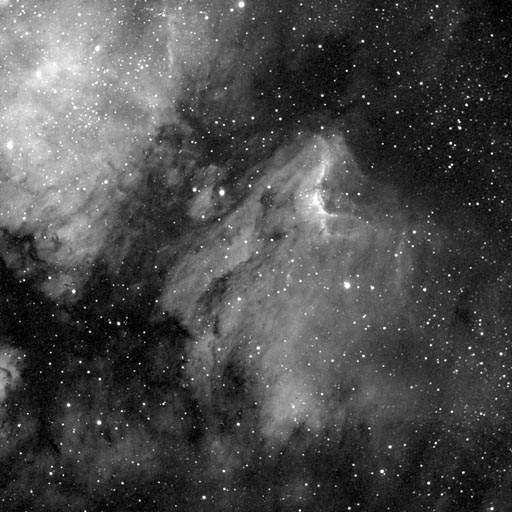 |
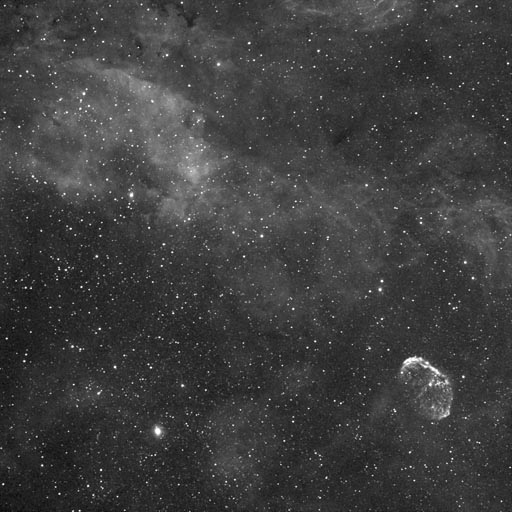 |
The Pelican Nebula in Cygnus |
The Crescent Nebula in Cygnus |
through a Hydrogen-α filter |
through a Hydrogen-α filter |
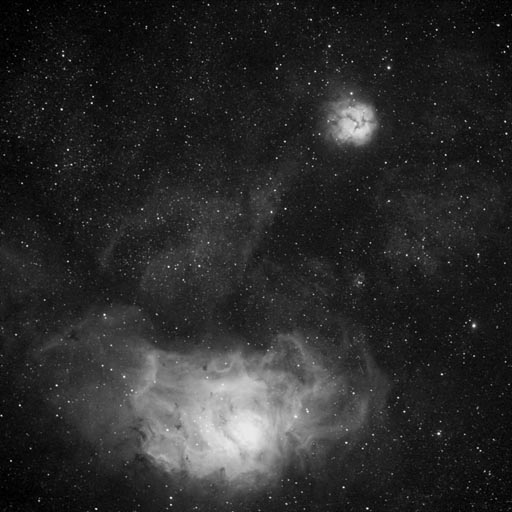 |
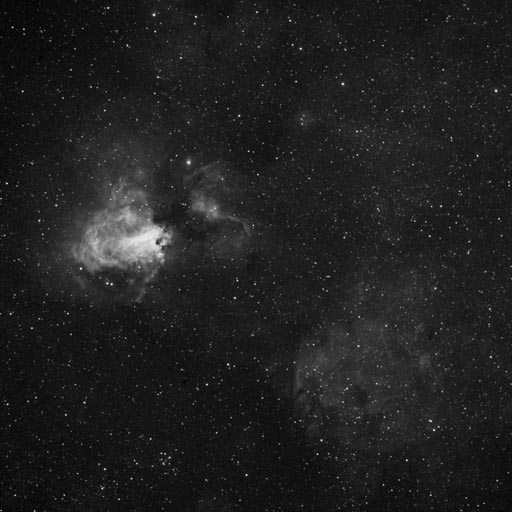 |
The Lagoon Nebula in Sagittarius |
The Omega Nebula in Sagittarius |
through a Hydrogen-α filter |
through a Hydrogen-α filter |
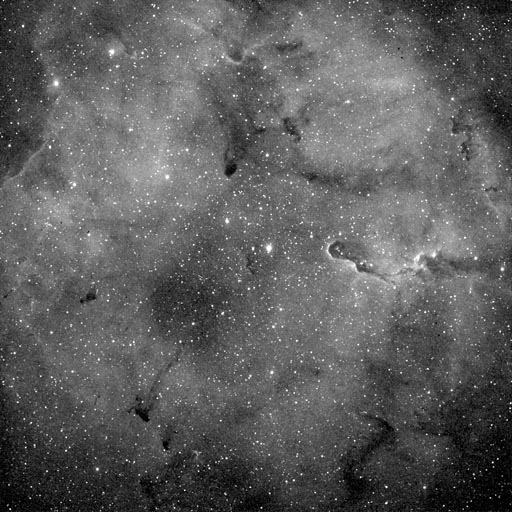 |
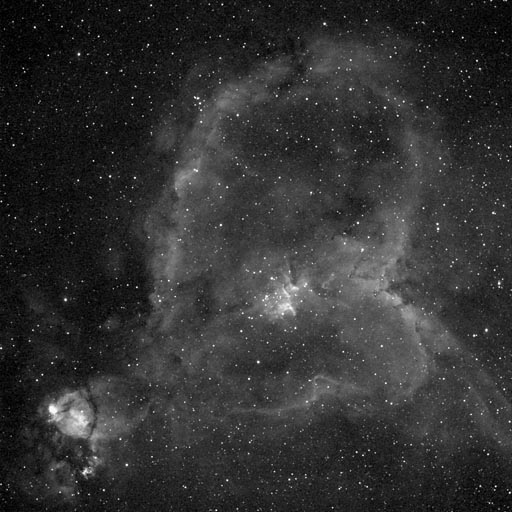 |
Emission nebula in Cepheus Including VdB142 - The Elephant's Trunk |
The Heart Nebula in Cassiopeia |
through a Hydrogen-α filter |
through a Hydrogen-α filter |
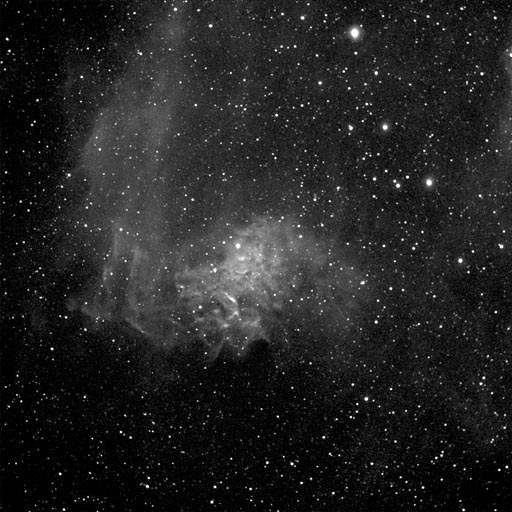 |
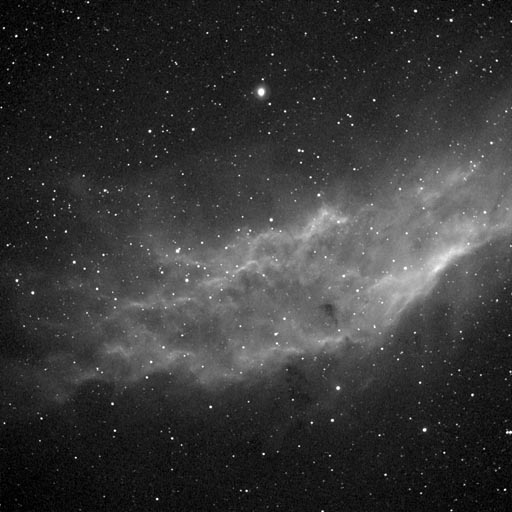 |
The Flaming Star Nebula in Auriga |
The California Nebula in Perseus |
through a Hydrogen-α filter |
through a Hydrogen-α filter |
| Additional technical notes | |
|
1.) The images were calibrated using a single darkframe, taken just prior to the first image in each series, no flats were used. 2.) A critical adaptor needed for the NP127is was left behind, so the normally 2.4" clear aperture of the focuser ended up being restricted to 2" because we had to interface the camera to the scope with a 2" nosepiece and a 2" diameter extension tube. The vignetting caused by this is especially visible in the M33 image above. 3.) The Tele Vue is-series Large Field Corrector was not installed, so the star image quality at the extreme corners of the image field could be a bit better, but the large pixel size of the STL1001 camera makes this less obvious. 4.) These images were all auto-focused using the Tele vue Focusmaster. 5.) This particular STL1001 camera has a CCD without an anti-reflection coating. This results in the halos around some of the bright stars in the Hα-filtered images. |
|